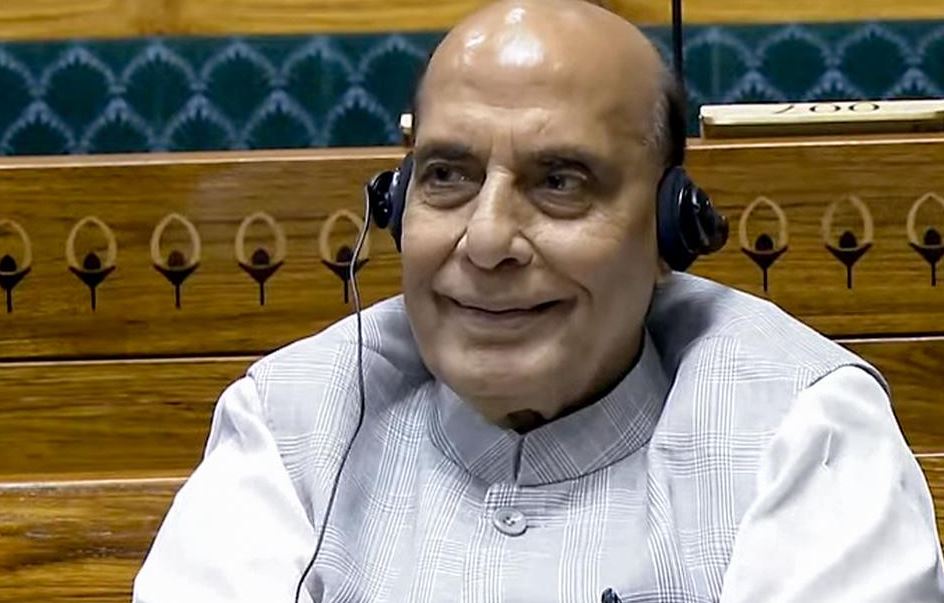Humanitarian Concerns Fuel Urgent Call to Halt Arms Exports to Israel
In an impassioned letter addressed to Defence Minister Rajnath Singh, a coalition of 25 prominent figures, including former judges, diplomats, activists, writers, and economists, has voiced their grave concerns regarding India’s ongoing export of arms and ammunition to Israel. This appeal, grounded in international law and humanitarian principles, seeks to illuminate the potential violation of India’s obligations and the ethical implications of such actions.
Legal and Ethical Quandary: India’s Arms Exports Under Scrutiny
The crux of the issue lies in Israel’s alleged violation of international law, as evidenced by the International Court of Justice’s (ICJ) rulings on the occupation of Palestinian territories and potential violations of the Genocide Convention. The letter contends that supplying military material to Israel under these circumstances would contravene India’s commitments under international humanitarian law and its own constitutional mandate.
Constitutional Imperative: Article 21 and Article 51(c) in Focus
The concerned citizens invoke Article 21, which guarantees the right to life and personal liberty, and Article 51(c), which mandates India to uphold international law and treaty obligations, as the constitutional foundation for their plea. They argue that exporting arms to a nation accused of violating international law would undermine these fundamental principles.
Indian Companies’ Involvement: A Complex Web of Collaboration
The letter sheds light on the intricate relationship between Indian and Israeli defense industries, highlighting the involvement of both government-owned and private entities. Several Indian companies have established joint ventures with Israeli defense manufacturers, contributing to the production of subsystems and components for military equipment.
Specific Cases Highlighted: Munitions India Ltd., Premier Explosives Ltd., and Adani-Elbit
The letter specifically mentions three Indian companies – Munitions India Ltd. (MIL), Premier Explosives Ltd. (PEL), and the Adani-Elbit Advanced Systems India Ltd. joint venture – as examples of entities involved in this collaboration. These examples underscore the need for a comprehensive reassessment of India’s arms export policies.
Moral Imperative: The Abhorrence of War Crimes
Beyond the legal and constitutional considerations, the letter emphasizes the moral repugnance of supplying arms to a nation implicated in potential war crimes and violations of international humanitarian law. It calls upon India to uphold its moral compass and prioritize human rights over economic interests.
Call for Immediate Action: Suspension of Military Collaboration
In conclusion, the letter implores the Defence Minister to take decisive action by canceling existing export licenses and halting the issuance of new ones to companies supplying military equipment to Israel. It urges India to reassess its military collaboration with Israel and ensure that any weapons already delivered are not used in ways that violate international law.
Key Learnings:
| Point | Description |
|---|---|
| International Law | Exporting arms to a nation violating international law raises legal and ethical concerns. |
| Constitutional Mandate | Article 21 and Article 51(c) of the Indian Constitution are invoked in the appeal. |
| Indian Companies’ Role | Several Indian companies collaborate with Israeli defense manufacturers. |
| Moral Obligation | The letter emphasizes the moral imperative to prevent arms from contributing to war crimes. |
Soumya Smruti Sahoo is a seasoned journalist with extensive experience in both international and Indian news writing. With a sharp analytical mind and a dedication to uncovering the truth, Soumya has built a reputation for delivering in-depth, well-researched articles that provide readers with a clear understanding of complex global and domestic issues. Her work reflects a deep commitment to journalistic integrity, making her a trusted source for accurate and insightful news coverage.



